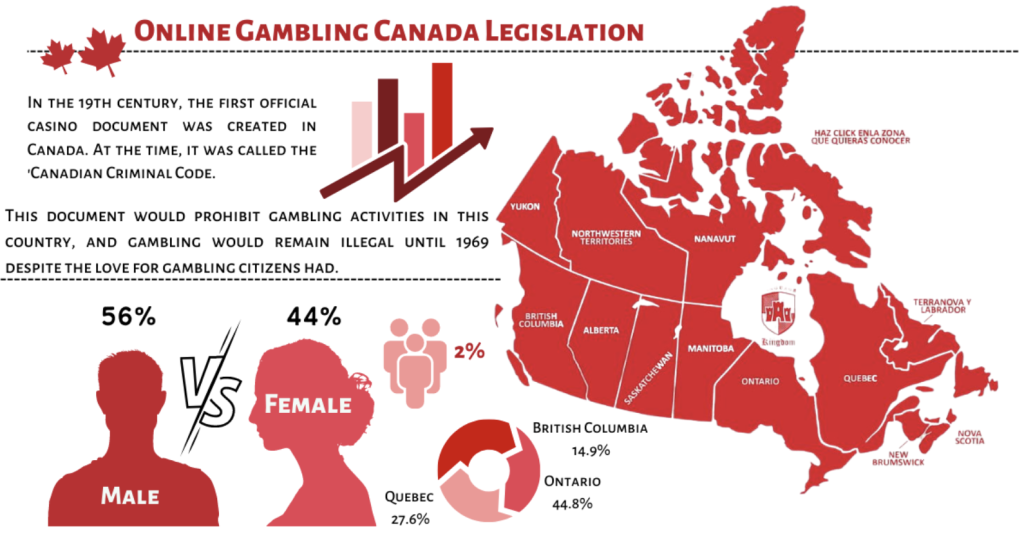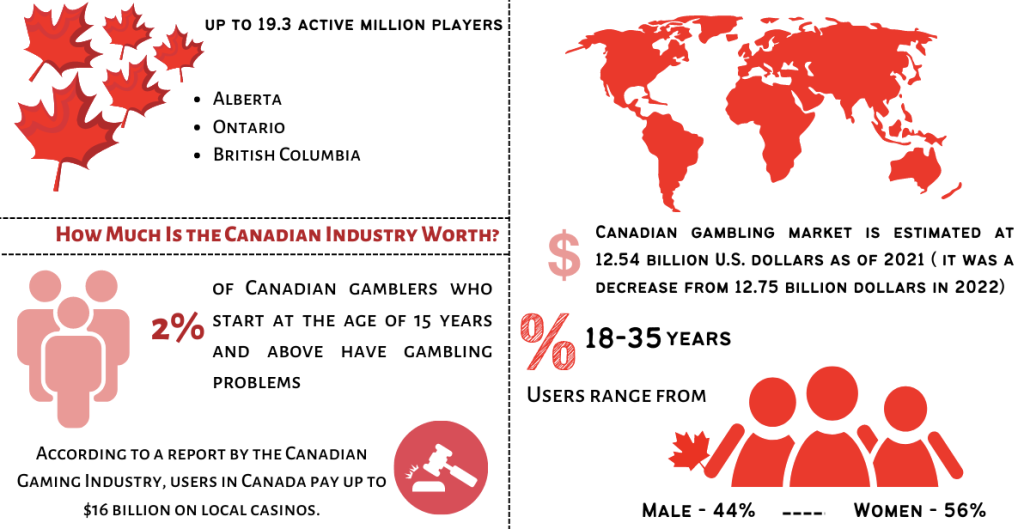Online gambling is legal in Canada under certain circumstances. In this article, the Rather Dashing Games experts have prepared a detailed report on the history of gambling legalization and the current legislation that controls this business online and offline.

Transparency
Only objective and fair reviews. We create honest ratings based on our experience and closely researched information.

Independent rating
We have an original database of Canadian online casinos. Thus, we can perform independent research.

Gambler control
We provide educational resources to prevent gambling addiction.

Security
We pick only trustworthy and safe casinos with robust security measures. A blacklisted casino in Canada will never make it to our rating.

Risk-free gambling
We provide profound tips for profitable gaming budgeting and guidance for quick casino transactions.
Legal regulation of gambling in Canada is determined at the local level in each province. The federal law that regulates gambling in the country is the Criminal Code. Casinos, lotteries, sports gambling, etc., are regulated by sections 204, 206, and 207 of the Criminal Code. These are fundamental provisions. More detailed bills are created at the local provincial level based on these three sections:
Each province has a commission that is responsible for controlling gambling in that area (Alcohol and Gaming Commission of Ontario, Yukon Liquor Corporation, etc.).
In general, online gambling is legal in Canada, but the legislation is more complicated than offline gambling laws. The main requirement for an online casino is the same as for a land-based one – a licenсe that must be issued by a provincial commission. However, a licenсe for online gambling is only allowed to be issued in 4 provinces: British Columbia, Quebec, Ontario, and Manitoba. Players in other provinces found a way out – they play on offshore sites, which are considered a grey area.

Below, our experts have prepared a brief description of the peculiarities of the gambling laws in the provinces.
In Alberta and Quebec, gamblers can enjoy different forms of gambling if they are over 18 years old. Gambling becomes legal in Canadian provinces British Columbia, Manitoba, New Brunswick, Newfoundland & Labrador, Nova Scotia, Ontario, Saskatchewan, Prince Edward Island, Yukon, Nunavut, and Northwest Territories for gamblers who are over 19 years old.
Online gambling is legal inAlberta through a government-regulated site Play Alberta.
Provinces such as Ontario, Nova Scotia, Prince Edward Island, Saskatchewan, and Quebec have legislation that takes into account the interests of their residents. For example, in Ontario, the relevant authorities licence and control third-party online gambling sites, giving their residents a basis for legal online gambling.
In Yukon, Nunavut, and Northwest Territories, Manitoba, New Brunswick, and Newfoundland & Labrador, online gambling is considered a “grey market.” This allows residents to get access to international gambling sites without legal consequences.

The process of making gambling legal was gradual. Most gambling entertainments did not have a legal status until 1969. That year, it all started with the legalization of lotteries, which influenced the Canadian authorities’ more loyal attitude toward other types of gambling (sports betting, slots, live games, etc.). In 1970, provinces were given the right to issue licences to allow gambling.
The process of developing and passing gambling laws was unevenly distributed across the country. Quebec, Manitoba, and Nova Scotia were the first states to pass laws on the subject.
In 1978, the relevant authorities of Quebec presented two acts: An act respecting the Société des Loteries du Québec and an Act respecting lotteries, publicity contests, and amusement machines.
In Manitoba, the Manitoba Lotteries Corporation Act was passed in 1993 and the Gaming Control Act in 1996.
In 1995, the authoritative bodies of Nova Scotia passed the Gaming Control Act.
Casino activities were legalized by the end of the century. In 1989, the first commercial land-based casino was launched in Winnipeg. Full legalization of casino activities in Canada was established on March 15, 1999. The Kahnawake Gaming Commission was created in 1996, and provincial commissions were called upon to regulate casino businesses. The Internet gambling market was legalized in 2009.
You need to be careful when choosing a casino or sportsbook to avoid falling for the bait of scammers and not have problems with local authorities later. The best way to protect yourself is to trust the professionals. Our experts have compiled a list of top gambling sites with official licensing. Save your time and choose a secure site from the table below.
 9.3/10
9.3/10 9.2/10
9.2/10